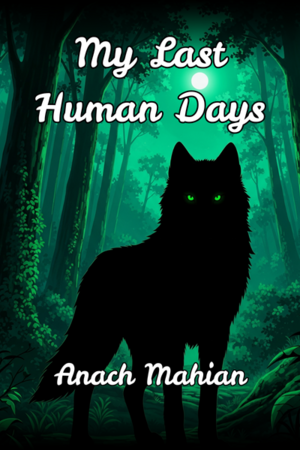Chapter 5:
Chapter 05 – The Glass Cube
My Last Human Days
17th May, Wednesday
The first night in the “Care Center” stretched into a timeless blur. There were no windows, only panels of fluorescent light that buzzed overhead like a swarm of wasps. They never dimmed, not for an instant. I tried to close my eyes, to pretend it was night, but the sterile brightness pierced my eyelids until red patterns swam across my vision. Every time I tried to doze, the echo of a distant door slam startled me awake.
I was lying on a cot that felt more like a surgical table—thin mattress, no sheets, no pillow. Just cold metal. My wrists and ankles still bore faint red marks from the restraints used earlier. I rubbed at them absentmindedly, staring up at the ceiling until my thoughts ran in tight circles.
It was my 18th year. I should have been at home. I should have been with my friends, celebrating, or maybe filling out my new ID application like every eighteen-year-old. Instead, I was here.
A lock clicked. My heart hammered as the heavy steel door creaked open. Two guards entered first, faceless in their matte black helmets with tinted visors. Their boots struck the floor with perfect rhythm. My body shrank back instinctively. My eyes had seen them before—silent, precise, like machines wrapped in flesh. But behind them, she was standing.
“Mom,” I whispered.
She rushed forward, nearly breaking into a run until the guards blocked her with a curt gesture. She stopped inches away from me, trembling, her hands clutching the strap of her purse so hard the leather strained. Her hair was messy, eyes swollen and red, mascara streaked down her cheeks.
“Oh, Lars,” she sobbed. “My boy, my baby.”
The guards allowed her to stand there but made no move to let her touch her son. They were statues, breathing but inhuman. “I’m fine, Mom,” I lied, my throat dry. “I’m fine.”
She reached a hand toward the invisible barrier of authority that kept us apart. “What have they done to you? You look so pale, so thin—” A second figure entered the room. It was my father.
My father was immaculate, as always. A dark suit pressed to perfection, tie knotted tight, shoes gleaming despite the drab concrete floor. He didn’t rush forward like my mother. He didn’t cry. He paused to take a pen from his breast pocket and sign the clipboard one of the guards offered. Only then did he lift his gaze toward me, his son. I braced myself for comfort, for some expression of warmth. But my father’s expression was carved from granite.
“We’ll get you out,” he said flatly, as if negotiating a merger. His voice carried no tremor, no hesitation. “Do as they say. Don’t resist. We’ll resolve this.”
I kept staring. “Resolve this? Dad, I—”
“Not now,” my father cut me off. “Do as you’re told.”
My mother broke into sobs again, covering her mouth with both hands. The guards shifted slightly, and I knew their time was up. The sound of the lock slamming shut after they left was louder than her crying.
18th May, Thursday
I didn’t know how much time had passed before they returned. The clock on the wall told me it was “14:32.” But whether that was day or night outside, I couldn’t quite guess. My mind was starting to suspect there was no outside anymore.
This time, my mother didn’t rush forward. She stood beside the door, her back straight but trembling, her eyes bloodshot. She didn’t cry, but her silence was worse than her sobbing. It was my father who stepped closer, his presence filling the room like a shadow.
“Lars,” he said, tone deliberate, slower this time. “There’s a way to… cure you.”
“Cure me?” I blinked. “What are you talking about? I’m not sick.”
“You are unstable,” father corrected, his jaw tightening. “Dr. Kessler believes you’re curable. But only if you cooperate.”
Salvageable. The word rang in my skull like a hammer strike. My mother glanced at the floor, lips pressed shut, as if she couldn’t bear to meet her son’s gaze.
“What does that mean?” I asked, panic creeping in. “What does ‘cure’ even mean? Dad, please—”
“You don’t need to know.” Father adjusted his tie, his movements sharp, precise. “What you need is discipline. Structure. They will help you here. We’ve signed the order for long-term care.” The phrase hit like ice water. “Long-term? You mean—” I turned desperately toward my mother. “Mom? Say something!” But she only shook her head. Tears welled in her eyes again, though she didn’t cry. She looked like someone carrying a coffin inside her chest.
The guards motioned. Time was up again. My father gave a brisk nod. Mother followed, her silence screaming louder than words.
When the door shut, I curled on the cot, pressing my palms to my temples until my nails dug into my scalp. Cure me. Salvageable. Long-term. The words gnawed at me until there was nothing left to hold on to.
25th May, Thursday
A week passed by until my parents visited me last. I told myself that they wouldn’t come back. I told myself that they had abandoned me, and strangely, that thought was easier to bear than hoping.
28th May, Sunday
Today, they came again. By then, I had memorized every scratch in the wall paint, every crack in the ceiling tiles. I rose when the lock clicked, heart pounding despite myself.
This time, mother did not cry. Her face was pale, her eyes hollow. She looked like a statue carved from sorrow, drained of all fluid life.
Father was even worse. He didn’t sit, didn’t sign papers. He didn’t even look around. He stood stiffly, hands behind his back, like a soldier before a firing squad.
“They’re transferring you,” he said simply.
I blinked. “Transferring me? Where?”
No answer. Father adjusted his cuffs. Mother turned her head away.
“Mom?” I whispered, voice breaking. “Please. Please don’t let them.” Her lips quivered, but no sound came out.
And then the guards stepped in, flanking me like vultures. The meeting was over before it began. As they dragged me away, I realized with a clarity that hurt: I was no longer their son. I was something else. A burden. A problem. A thing to be handed off. That was the only time I could see them.
At night—or maybe morning, who could tell? Two guards arrived without warning. They strapped my wrists and ankles. Their hands were efficient, not cruel, but the indifference was worse. I might as well have been a package being secured for delivery. They marched me down a corridor I hadn’t seen before. Unlike the bright, sterile halls above, this one sloped downward, the lights dimmer, the air heavier. The smell shifted from disinfectant to something metallic, like rust.
The walls changed from polished white tiles to exposed stone, damp and uneven. Wires slithered along the ceiling like black veins. The hum of machinery grew louder the deeper we went, a mechanical drone that pressed against my skull until I thought my ears might bleed.
Finally, we stopped before a reinforced steel door, its surface scarred with scratches. One guard entered a code. The door hissed, depressurizing, and then swung open. Inside, the room glowed with clinical fluorescence. A figure stood waiting, hands clasped behind his back, his posture almost theatrical.
Dr. Kessler.
He was exactly as I remembered from the intake: tall, thin, with features too sharp, too precise, like a drawing made with a ruler. His grin was too wide, exposing teeth that seemed too perfect. His lab coat gleamed white under the lights, his gloves spotless.
He clapped once, the sound echoing sharply. “Ah, Lars McKnight,” he said, savoring the name as though it were a fine wine. “The guide of skins. Welcome home.”
I froze. Guide of skins? My stomach turned cold.
They stripped me of my clothes, leaving me in a flimsy paper-thin gown that barely covered my knees. The air was cold, biting against my bare skin. The place they put me wasn’t a room but a box. A cube of reinforced glass, supported by steel beams. There was no bed, no chair, no blanket—just a drain set in the center of the floor, as if they already expected me to spill blood.
Dr. Kessler circled the glass box like a shark. His eyes glittered, his grin never wavering.
“You are not sick, Lars,” he said with a smooth voice. “You are extraordinary. But extraordinary things must be…observed.”
I pressed my palms to the glass. My breath fogged it faintly. “I’m not dangerous.”
“Not yet,” Kessler replied, tilting his head like a bird. “But you will be. Oh, you will be.”
He snapped his fingers. The lights above us flickered. I heard a faint hiss of gas being released. My vision blurred almost instantly, muscles heavy. I staggered, knees buckling, the room spinning into a whirlpool. The last thing I saw before collapsing was Kessler’s grin, gleaming under the sterile lights, sharp as a knife. And then, blackness.




Please sign in to leave a comment.